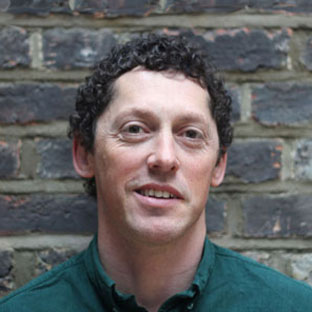RSA Education has begun a new partnership with Service Children’s Education, the agency responsible for the children of Ministry of Defence personnel, service and civilian, who are based overseas. SCE currently provides education for over 10,000 pupils in 38 schools in nine countries.
To begin the partnership, I spent two fascinating, inspiring days at JHQ, a garrison in Rheindahlen near Dusseldorf that serves as the central headquarters of the British Forces in Germany. JHQ will close next year, and the start of this process has been wonderfully documented by pupil Callum Kelly through his Gold Arts Award.
We are working with SCE to help them think through their education offer during a time of considerable change for the organisation, and plan some projects that connecting their schools to our work on Opening Minds and the Area-Based Curriculum. This builds on some fantastic work SCE schools did through Creative Partnerships, including this animation that connected primary pupils at St Patrick’s School to their grandparents back in the UK.
Overall, I was struck by both the deep similarities and the subtle but significant differences between SCE schools and schools back here in England. Staff attrition is lower but pupil turnover much higher; teachers are ‘deployed’ as civil servants; headteachers do not have control of their own budgets, but, with the power of Commanding Officers, can issue parking tickets, and are informed immediately if their teachers ever have contact with the Military or host nation’s police!
It is clear that SCE schools are delivering a high quality education for their pupils. Their schools, leaders and teachers have expertise, especially around mobility and bereavement issues, as well as around closing schools properly, that the rest of our system needs to learn from. The Year Six and Eight pupils I spoke to handle their own regular ‘redeployments’ with resilience (as well as with Skype and Facebook). The two schools I visited were a highly creative and clearly deserve their Artsmark Gold awards. Windsor school has taken on the challenge of disconnection and isolation to make sure that, despite being on a garrison, their students experience as many external learning opportunities as possible. Teacher Chris Scholl’s Comenius project has connected pupils to other countries, and to help them explore aspects of their own identities.
The passion that the two remaining JHQ schools showed for ensuring a fantastic final year for their staff and students is extraordinary. The schools wish both to carry on as usual, and mark the end of the schools and JHQ through celebration as a ‘teachable moment’. We are exploring options for a Heritage Lottery Fund project, led by schools, but exploring the history of the whole garrison.

In many ways, SCE operates like an old fashioned local authority, in the best sense of the word. The inspectors and advisers have the up to date knowledge, resources and authority to make a real difference to school improvement. Schools appear to have the autonomy they need to do the job well, without some of the burdens that control over budgets, staffing and governance bring. With a reduction in schools and personnel this may change in the years ahead, and SCE is already thinking deeply and carefully about new structures and partnerships. However, there is something precious and special about the existing infrastructures and relationships, and even some of the quirkier rules and regulations, linked to their ties to the Ministry of Defence. We hope that, in the year ahead, RSA can help SCE and its schools to design their own future, rather than have an outsourced solution thrust upon them.

Join the discussion
Comments
Please login to post a comment or reply
Don't have an account? Click here to register.
This is very perceptive of Joe after one visit to Service
Children's Education.
SCE is a very special organisation. Owing to the transient
nature of working for the Armed Forces where tours can last between
2-3 years, our young people do not have the roots or sense of
identity their counterparts have in local communities in the UK.
Many of our young people can be third generation British. I have
been with SCE for almost 9 years now and I remain humbled by the
work of staff in schools, who work very hard to give young people
that sense of 'belonging' that shapes young people and prepares
them well for their next stage regardless of their time with us. I
believe our core values resonate with those of the RSA. SCE is like
one big extended family. Mobility is no longer a weakness, it is a
strength in this multicultural, global society.
Through the amazing work of Joy Harris, our Performing Arts'
Consultant, we are able to bridge the cultural gap between SCE and
UK through the arts; our young people are no longer disadvantaged,
instead they are given incredible opportunities to nurture talents
and develop skills they did not even know they had!
I look forward to the RSA/SCE partnership and the many
exciting opportunities that lie ahead for our very special young
people!
Lisa Crausby Inspector Adviser SCE
Joe mentions something incredibly important here, something that though I've been away at University for two years now, I have seen over facebook and through friends still at Windsor; the growth of passion and creativity from both staff and students in Windsor School's last years. It's incredible to think that instead of a slow decline in activity, morale and ultimately interest, Windsor School's final moments are characterised the explosion of adventurous projects like Comenius and Artsmark, which enrich both the School and those that they touch. I'm grateful to Joe for devoting this piece to a truly remarkable group community.
Peter Gronland
What a great write up! We knew all that though,didn't we?!Glad that someone else has seen it
Windsor School is a very unique place indeed. Try explaining what it is to any normal UK student and you'll understand... It was a place where you could feel the teachers were doing all they could for the students but also that the students were upholding their part of the Bargain to. Examples of this were the Arts Award project and MHoP (Model Houses of Parliament). Arts Award was enthusiastically endorsed by the school staff but would still have been a non-starter had the students not picked it up and really run with it. MHoP was a government simulation conceived and largely run by the students and was such a great success owing to the hard work of all the staff in removing the bigger obstacles.
I left Windsor a couple of years ago to go to University and it really warms the deepest regions of my heart to know that the schemes and initiatives I was involved in whilst there are still going strong and sometimes sprouting all new activities.
Steve, you must come to the closure celebrations of Windsor next July 2013. Please get in touch.thanks Joy